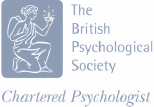Latest Videos | Latest Articles
1. What is an eating disorder?
Eating disorders are characterised by a core psychopathology that is cognitive in nature and grounded in an over-evaluation and an excessive focus on the sufferer’s shape, weight and the notion of control of these factors in their life. In others words, someone with an eating disorder may make unhealthy choices around the consumption of food that can result in lasting damages to their health as a consequence. An eating disorder will lead to significant changes to an individual’s diet, usually in the form of under or overeating. Experiencing severe distress following changes to shape or weight may also indicate the development of eating disorders. Eating disorders come in different forms, but the most common presentations include anorexia nervosa, bulimia nervosa, and binge-eating disorder.
2. Causes, signs and symptoms
Current research suggests that eating disorders are caused through a complex interaction between, biological, behavioural, genetic, psychological and social factors. Some research has suggested that there might be a genetic component to eating disorders and that some individuals may develop an eating disorder due to inherited genes. Other research suggests that psychological and social factors play a greater role in the development of an eating disorder and factors such as upbringing; media; or a pressure in society to be thin can all contribute to the development of an eating disorder. In most cases the cause is complex and includes a combination of several factors, including family issues, personality traits, physical and mental health problems, difficult life experiences, and social pressure. This includes extremely restricted eating or excessive overeating, distorted body image and a self-esteem that is heavily influenced by perceptions of body weight and shape, physical health difficulties as a result of malnutrition, unhealthy diet or unhealthy compensatory behaviour, purging or other compensatory behaviours, dehydration, gastrointestinal problems and acid reflux.
3. Diagnosis
Each eating disorder has its own diagnostic criteria and these can be found in the Diagnostic and Statistical Manual of Mental Disorders version 5. For someone to be diagnosed with an eating disorder they will need to have at least some of the symptoms detailed above. The most common symptoms when diagnosing an eating disorder is a persistent restricting of energy intake that results in significant low body weight, an intense fear of gaining weight or for one’s body shape to change, distress as a result of changes to shape or weight, recurrent inappropriate compensatory behaviour in order to prevent weight gain, binge eating, marked distress during or following food intake, and a self-evaluation that is unduly influenced by body shape and weight.
4. Eating Disorder Treatment
Eating Disorders are normally treated with psychotherapy, specialist medical management and possible inpatient care. Some people may also need refeeding programmes and medications. Choice of treatment depends on the nature of the eating disorder, the severity of the disorder, and individual choice. In some cases, psychoeducation, self-help books or computerised self-help programmes may be helpful. Psychologists provide different techniques and therapies. According to the National Institute for Health Care Excellence (NICE) the recommended psychotherapy for Eating Disorders is specialised Cognitive Behavioural Therapy (CBT) and Family Therapy. CBT for Eating Disorders is a type of therapy that focuses on the connection between thoughts, emotions and behaviour and teaches the person new ways of thinking and behaving that may help in addressing the over-evaluation of the importance of food, weight, shape and control of these areas. Family therapy enables people who are close, such as family members, to explore and express difficult emotions and thoughts safely, and to understand each other’s views, experiences and needs. Family therapy can help build on the strengths within the family so that useful changes in their relationships and their lives can be made. CBT-E is usually used with adults who suffer from an eating disorder, whilst family therapy is commonly used with children and adolescents with an eating disorder.
It is advised that all people who suffer from an eating disorder undergo regular medical checks due to the many common physical health difficulties that can occur as a result of the eating disorder. Some people with eating disorders may also require the use of medication and your GP will be able to provide you with guidance on what medication to take. At present two types of medications are commonly used to treat eating disorders – antidepressants and anti-anxiety medications. Some of these medications start working immediately whilst others take several weeks to start working. Common to all medication is that it may cause side effects and some medication should not be taken for prolonged periods of time.










